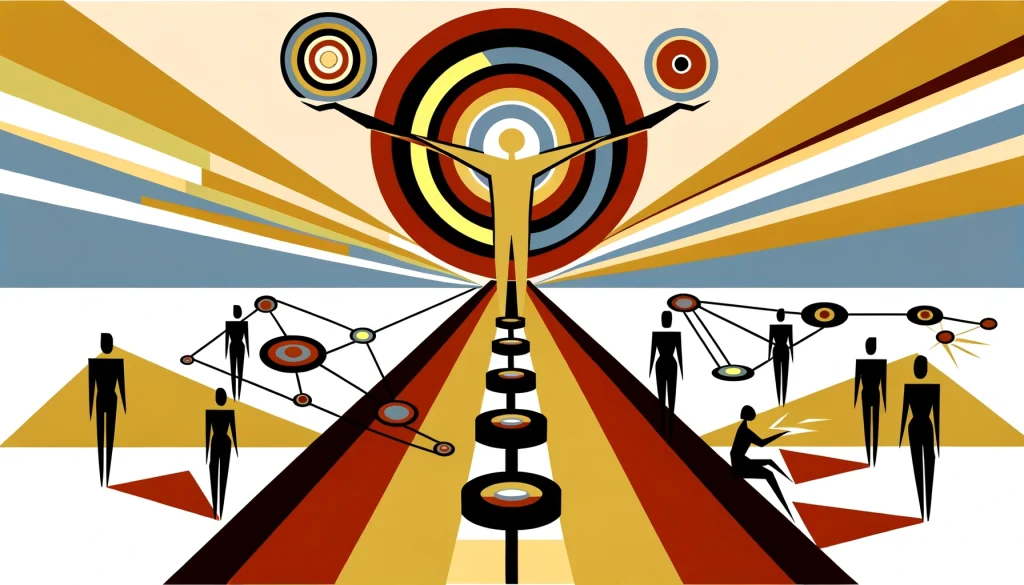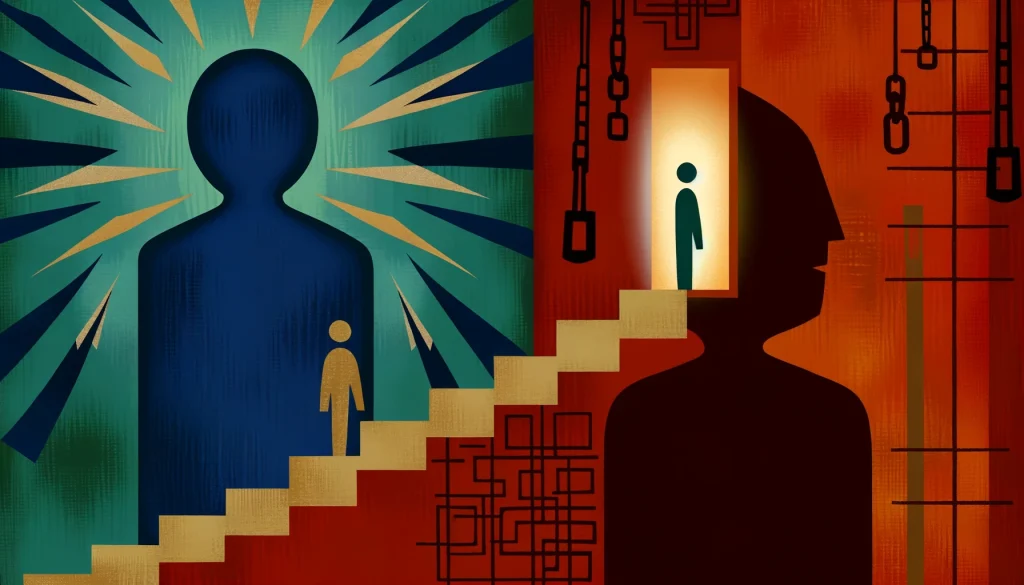We’ve all been there – that sinking feeling when reality falls short of our expectations. Disappointment is one of the most universal human experiences, yet it remains incredibly personal in how it affects each of us. Did you know that according to recent psychological research, how we handle disappointment is actually one of the strongest predictors of overall life satisfaction? It’s true! I’ve found that understanding disappointment isn’t just about managing negative emotions – it’s about developing resilience that serves us throughout our entire lives. Whether you’re dealing with a major life setback or a minor letdown, this guide will help you navigate disappointment with grace and emerge stronger on the other side. Let’s explore how to transform those painful moments into opportunities for growth!
Understanding the Psychology of Disappointment
When disappointment washes over us, it's more complex than simply feeling sad. It's a unique emotional experience that stems from the gap between our expectations and reality.
"Disappointment is essentially unmet expectations," explains Dr. Maya Richardson, a clinical psychologist specializing in emotional regulation. "Unlike sadness, which can arise from many situations, disappointment specifically occurs when something we anticipated doesn't materialize in the way we hoped."
The brain processes disappointment in fascinating ways. When we experience it, our dopamine levels—those feel-good neurotransmitters—suddenly drop. This creates that distinctive sinking feeling in your chest. Simultaneously, the anterior cingulate cortex, which processes emotional pain, becomes more active.
- Disappointment involves both cognitive appraisal (recognizing that expectations weren't met) and emotional response (feeling let down)
- Unlike grief, which involves loss, disappointment centers on unfulfilled hopes or expectations
- Our brain's reward prediction system plays a crucial role in how intensely we experience disappointment
- Research shows that people with optimistic personalities may experience disappointment more frequently but often recover more quickly
The Physical and Emotional Impact of Disappointment
Disappointment doesn't just live in our minds—it affects our entire bodies. When disappointment strikes, it triggers a mild stress response: your heart rate might increase, your muscles may tense, and you might notice a change in your breathing pattern.
"Many people don't realize that disappointment has physical manifestations," notes Dr. James Cooper, a psychoneuroimmunologist. "I've worked with patients who experience fatigue, headaches, or even digestive issues following major disappointments. The mind-body connection is powerful."
Emotionally, disappointment often travels with companions: frustration, anger, shame, or a sense of inadequacy. How we respond to these emotions is heavily influenced by our upbringing and cultural background.
- Physical signs of disappointment can include fatigue, muscle tension, disrupted sleep patterns, and decreased energy
- Prolonged disappointment may suppress immune function and increase vulnerability to illness
- Cultures that emphasize stoicism may encourage suppressing disappointment, while others promote open expression
- Disappointment can either diminish motivation ("why bother trying again?") or fuel determination ("I'll prove them wrong")
- Family patterns around handling disappointment are often unconsciously passed through generations
Healthy Ways to Process Disappointment
Processing disappointment effectively begins with acknowledging what you're feeling without judgment. Many of us were taught to "brush it off" or "get over it," but those approaches can actually prolong the emotional impact.
"The emotions we resist tend to persist," says therapist Elena Martinez. "When we give ourselves permission to feel disappointed, we paradoxically move through it more quickly."
Journaling can be particularly powerful for processing disappointment. Writing about your expectations, what actually happened, and the resulting feelings creates distance and perspective that's hard to achieve through thinking alone.
- Try the "disappointment download" technique: write freely for 10 minutes about your disappointment without editing or censoring yourself
- Practice the self-compassion pause: place a hand on your heart and say, "This is a moment of disappointment. Many people feel this way. May I be kind to myself right now."
- Use the RAIN approach (Recognize, Allow, Investigate, Nurture) when disappointment arises
- Express disappointment to others using "I" statements rather than blame: "I feel disappointed because I was looking forward to…"
- Consider creating a simple ritual to release disappointment, such as writing it down and tearing up the paper
Reframing Disappointment as an Opportunity
While disappointment feels uncomfortable, it can be incredibly informative. Each disappointment contains valuable data about what matters to you, potentially illuminating values and priorities you might not have fully recognized.
"I encourage clients to ask, 'What does this disappointment reveal about what's important to me?'" explains cognitive behavioral therapist Dr. Michael Lin. "Sometimes we don't fully understand our own values until disappointment highlights them."
History is filled with examples of remarkable success stories that emerged from disappointing setbacks. J.K. Rowling's Harry Potter manuscript was rejected by 12 publishers. Michael Jordan was cut from his high school basketball team. Thomas Edison famously said of his many failed attempts to invent the light bulb: "I have not failed. I've just found 10,000 ways that won't work."
- Try the "future self" exercise: imagine yourself a year from now looking back on this disappointment—what might you have learned?
- Use the "three doors" technique: when one door closes, look for the other doors that might now be visible
- Ask yourself: "How might this disappointment be preparing me for something better?"
- Practice reframing statements: "I didn't get the job" becomes "I'm now available for an opportunity that's a better fit"
- Keep a "growth through disappointment" journal to track how past disappointments led to unexpected benefits
Building Resilience Through Disappointment
Resilience isn't about avoiding disappointment—it's about developing the capacity to bounce back from it. Each time we navigate disappointment effectively, we strengthen our emotional muscles for future challenges.
"Resilience is like a muscle that develops through stress and recovery," says positive psychologist Dr. Sarah Williams. "Disappointment, when processed healthily, is actually one of the best training grounds for building emotional strength."
Developing realistic expectations plays a crucial role in resilience. This doesn't mean lowering your standards or becoming pessimistic—rather, it's about holding your goals with a sense of flexibility and openness to multiple positive outcomes.
- Practice the "both/and" approach: "I can both feel disappointed AND recognize this isn't the end of my story"
- Develop a resilience mantra such as "This too shall pass" or "I've recovered from disappointment before and I will again"
- Create a "disappointment recovery plan" with specific self-care activities that help you bounce back
- Balance hope and planning: hope for the best while preparing contingency plans
- Build a "resilience inventory" by listing past disappointments you've successfully navigated
Supporting Others Through Disappointment
When someone we care about experiences disappointment, our instinct is often to minimize their feelings ("It's not that bad!") or immediately jump to solutions. However, what most people need first is simply to be heard and validated.
"The most powerful thing you can do for someone experiencing disappointment is to create space for their feelings without trying to fix them," advises relationship counselor Dr. Rebecca Chen. "Often, people just need to know their disappointment matters to you."
This is especially true when supporting children through disappointment. While it's tempting to shield children from disappointment, age-appropriate experiences of letdown actually help them develop crucial emotional skills they'll need throughout life.
- Practice reflective listening: "I hear how disappointed you are about not getting that promotion you worked so hard for"
- Avoid dismissive phrases like "Everything happens for a reason" or "Look on the bright side"
- For children, name and normalize the feeling: "You're feeling disappointed because you didn't win the game, and that's completely okay to feel"
- Ask supportive questions like "What would help you feel better right now?" rather than assuming you know what they need
- Create a judgment-free zone where people feel safe expressing disappointment without being rushed to "get over it"
Conclusion
Disappointment may be inevitable, but being crushed by it isn't! By understanding the psychology behind our letdowns and implementing healthy coping strategies, we can transform disappointment from something we dread into a powerful catalyst for growth. Remember that how you respond to life's letdowns often matters more than the disappointments themselves. The next time you face disappointment, try viewing it as valuable information rather than a dead end. What might it be teaching you about your values, expectations, or needs? I encourage you to practice self-compassion, reach out for support when needed, and trust that with each disappointment you navigate, you're building resilience that will serve you throughout your life. What small step can you take today to change your relationship with disappointment?






